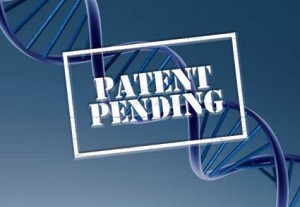Legal Fight over Gene Patents in AMP vs. Myriad Case to Be Subject of Oral Hearings at the Supreme Court, Just Months after Its Ruling in Prometheus Case
Both pathology profession and biotech industry have much at stake in how Supreme Court rules in this important case involving the patentability of genes
Legal challenges to gene patents are a high interest topic among pathologists and clinical laboratory scientists who perform genetic testing. Two high profile cases involving gene patents were accepted by the Supreme Court. A ruling was made in one case and the second case is continuing.
The Supreme Court issued a ruling in one case, titled Mayo Collaborative Services v. Prometheus Laboratories, Inc. (Prometheus). The dispute centered upon Prometheus’ method patents to testing for metabolites of the drug thiopurine in patients with gastrointestinal disease.
In a unanimous opinion, the Supreme Court ruled that these patents were invalid. Some medical laboratory scientists believe that the ruling could ultimately result in the invalidation of the even more significant gene patents, including those gene patents at issue in Association for Molecular Pathology, et al. v. Myriad Genetics (Myriad)..
New Ruling Has Huge Significance for Pathology and Lab Medicine
According to a story in CAP Today, in the Prometheus case, the court reasoned that a process of recognizing and reciting a law of nature is not patentable because laws of nature are not patentable.

This summer, the Supreme Court will hear oral arguments in the case of Association of Molecular Pathology vs. Myriad Genetics. At issue is the patentability of genes. In March, the Supreme Court ruled unanimously against Prometheus in another case involving gene patents. (Image by PSmag.com)
“We have the first clear statement by the Supreme Court—and by a unanimous Supreme Court—that laboratory testing really amounts to nothing more than an observation about the correlation between an analyte and a particular medical condition is not patentable,” stated Jack Bierig, JD, Partner with Sidley Austin in Chicago, in the CAP Today article.
Bierig observed that the key question presented by Prometheus is where to draw the line between a law of nature and an application of the law. “There is a well-known distinction between laws of nature—which are not patentable; and applications of laws of nature—which are patentable,” he stated. “This is the first Supreme Court case that has addressed that question in the context of laboratory testing.”
The ruling overturned the U.S. Court of Appeals for the Federal Circuit (CAFC) decision which upheld the Prometheus patents.
Prometheus Decision May Render Myriad Gene Patent Claims Invalid
Important questions still remain about the patentability of genes. Just six days following the March 20, 2012, ruling in Prometheus, the Court remanded Myriad to the CAFC for reconsideration under the new ruling. In 2011, the CAFC found in favor of Myriad.
The Myriad case originated in 2009 when several plaintiffs, including the American Civil Liberties Union, filed a lawsuit challenging seven of Myriad Genetics’ (NASDAQ: MYGN) patents on the BRCA1 and BRCA2 genes and methods for interrogating the genes.
The question of gene patentability is of critical importance to pathologists, according to Roger D. Klein, M.D., J.D., a molecular pathologist and Chair of the Professional Relations Committee of the Association for Molecular Pathology (AMP). Klein observed in CAP Today that enforcement of gene patents in Myriad has interfered with pathologists’ ability to provide comprehensive interpretations involving multiple diagnostic test procedures. He asserted that the patents have also prevented pathologists from implementing cost-saving algorithms that reduce unnecessary testing.
“It’s the gene patents that are so universal,” agreed Wayne W. Grody, M.D., Ph.D., Professor of Pathology and Laboratory Medicine, Pediatrics, and Human Genetics at the University of California School of Medicine. “We really care much more about the impact of this case on Myriad and other cases that may come later,” stated Grody, who is also President of the American College of Medical Genetics and Genomics.
Biotechnology in a “Minor Panic” Following Prometheus Ruling
According to a story in The Economist, the biotechnology industry is in a “minor panic” at the implications of the high court’s unexpected ruling in Prometheus.
Klein rejects the biotechnology industry’s argument that patent invalidation will jeopardize the advancement of personalized medicine. “I think it will produce tremendous advancement and accelerate progress,” he stated.
John H. Noseworthy, M.D., President and Chief Executive Officer of Mayo Clinic, agreed. “[The new ruling] will favorably impact patient care because it provides broad access to good-quality bedside testing,” he stated in a story published by The Wall Street Journal.
At this point, oral arguments in the Myriad case are scheduled for this summer. In reconsidering the Myriad case, the CAFC may reverse its previous ruling upholding the BRCA gene patents, Bierig speculated. Or, the case may end up in the Supreme Court for final determination.
“I think there’s a chance that the Supreme Court could now rule that the product of the genome is basically a natural phenomenon,” observed Bierig. Klein agreed, suggesting that the Prometheus decision probably renders the Myriad patent claims invalid.
Pathologists and clinical laboratory managers will want to continue to follow the surprising developments in these clinically-relevant patent cases. The Prometheus decision sent a clear message that the Supremes are positioned on the side of the “medical” rather than “commercial” ethic in the area of genetic patents.
For its part, the biotechnology industry may ultimately have to resort to seeking relief through congressional revision of patent law as it pertains to genes. Of course, it can be expected that the clinical laboratory testing profession would be actively educating Congressman should there be consideration of such legislation.
—Pamela Scherer McLeod
Related Information:
For background on the patent cases:
By Zeus! Prometheus ruling checks patents
Prometheus unsound: America’s Supreme Court wallops the biotech industry



